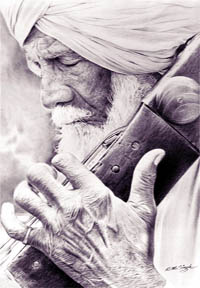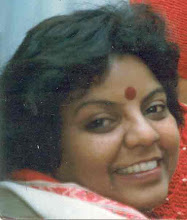 War And Verse
War And Verse
The strange saga of animosity between India and Pakistan is not without strong bonds of shared language, literature and culture. Will these bonds survive the clouds of suspicion that hang heavy after Kargil, asks
Nirupama Dutt
GULZAR: ``For the third generation, Pakistan will be Pakistan and India will be India. It will last as long as the memory of grandparents lasts.''
JAVED AKHTAR ``The Indian Muslims have reiterated their stand against the two-nation theory. It is for the other side to come out and say so too, for nations should not be based on religion.''
When guns fire, solders die and the wall of mourners pierces the overcast sky in Kargil, it certainly is not the time to write poetry. The brave do not write poetry. They die and they are dead: so said Russian poet Joseph Brodsky. Then one doesn't really write poetry on sad days: a sentiment expressed in verse by a prominent Hindi poet known for his political poetry, Kumar Vikal. When the brave die and the days are sad, one looks desperately for a line of poetry to hold on to as one hold son to life. It could be a soothing verse from the scriptures or an Urdu couplet accompanying the photograph of a young soldier in an obituary notice in a newspaper. Or a marching song, which the sad father recalls at his son's funeral, of flowers blooming where martyrs fall.
Poetry infiltrates with a difference. It comes bringing hope, peace and love. Poetry is not propaganda and it runs far deeper than patriotism, even though poets are often pressed into the service of the nation. A Gulzar giving his poetic message on the radio to soldiers in Kargil or a Javed Akhtar addressing people at Aye Watan Tere Liye, a starry nite organized in the Capital. But this they do in their individual capacity as citizens. When they turn to writing poetry, humanity replaces geographical considerations.
Petry knows not the division of ours and theirs. The dawn of Independence that broke upon India and Pakistan was sullied with blood, rape and devastation. The poet could not but voice his despair. It was Faiz Ahmed Faiz who said that this was not the dawn of freedom that had been looked orward to: yeh dagh, dagh ujala, yeh shab-guzida sehar; Intezar thha jiska yeh who sehar to nahin. Half a moon and a star fluttered on one side and the tri-colour on the other, and there were many who felt, truly, this was not the face of the dawn for which heroes had gone to the gallows. It was Amrita Pritam who invoked Waris Shah to speak again of the sorrows of the land of Punjab torn in two, and the poem was loved on the other side of the barbed wire too. The lot of poets on the other side was often to be behind bars for offending the dictatorial regime. Faiz, undergoing a jail term in the Fifties, sent out a couplet: Badha hai dard ka rishta yeh dil garib sahi; Tumhare naam pe aayeinge ghamgusar chale (This bond of suffering is great even if the heart be imporverished; Just call us and we'll be there to share your sorrows). It at once touched hearts on both sides.
The two countries shared a dard ka rishta (bond of suffering) and Sahir Ludhianvi, one of the finest lyricists of Hindi cinema, explicitly said that be it the blood of the Hindu or the Muslim, it was the blood of humanity. Years later, when Pakistan suffered humiliation and Bangladesh was created, Sahitya Akademi Award winning Punjabi poet S S Misha wrote an empathetic poem even as victory songs were being sung on this side. He described the strange saga of animosity' which brought a tear even to the `victor's eye during the surrender of arms.
But how long will these bonds hold as fundamentalists on both sides seem to working towards an exclusive culture? Ask this of poet and film-maker Gulzar and he says: ``What the two countries share is not just contemporary poetry. We share Baba Farid, who is a part of the Guru Granth Sahib. The question is that will this common culture survive for the generations to come? For the third generation, Pakistan will be Pakistan and India will be India. It will last as long as the memory of grand parents lasts. The breeze has to keep blowing if the shared heritage is to mean anything to those who follow.''
Alas! It is a hot wind which seems hellbent on scorching that which is tender on both sides. While fundamentalism of the Pakistani variety has been only too well known, our side too is now making up for lost time with vengeance. The guardians of Hindutva seem to have found in Kargil a scapegoat for their cultural crusade. The guns were trained on M.F. Husain for his paintings, then on Shabana Azmi for her role in Deepa Mehta's Fire and now on the Dadasaheb Phalke Award winning actor Dilip Kumar to return the Nishan-e-Imtiyaz award to Pakistan.
Poet Javed Akhtar says: ``What happened at Kargil was unfortunate. But its repercussions in the body politic of Pakistan are significant. For the first time, people have come out openly against the fundamentalists. A showdown is inevitable. If Pakistan goes a more reasonable way, the cultural ties between the two countries are bound to improve.'' And what about this side? Have not the Indian Muslims been called upon to wear the badge of patriotism? Akhtar's answer to these questions is: ``To some extent it is understandable. A section of people may doubt the loyalties of the Indian Muslims. But the Indian Muslim has reiterated his/her stand against the two-nation theory. It is for the other side also to come out and say so too, for nations should not be based on religion.''
Says Delhi-based playwright Asghar Wazahat, who penned the modern classic Jis Lahore Nahi Dekhea O' Jamea Nahin, which addressed the issue of communalism, using the shared poetic experience and interspersing the play with the poems of Nasir Kazmi who migrated to Pakistan in 1947 and whose poems reflect the agony of Partition. Wazahat's play, a raging hit in India, was also to be performed in Karachi. But the Pakistan Government did not allow it to be staged. `` It had only two exclusive shows in the Goethe Centre, Karachi, in 1991. But the reviews it got there were similar to the reviews here. This means there are liberal, secular people there too,'' adds Wazahat.
The poem which the liberals are holding on to for dear life in these troubled times comes from Pakistan. It has been penned by Fehmida Riyaz, a poet well-known to India. Having earned the wrath of the mullahs during Zia-ul-Haq's regime, she lived in exilein India for seven years. The poem is a scathing comment on the rise of fundamentalism on this side of the border: Tum bilkul ham jaise nikle, Ab tak kahan chhupe thhe bahi. She says that the folly and bigotry in which they passed a century, is now knocking at our door. With her tongue firmly planted in her cheek she cries out, ``Congratulations, many congratulations to you!''
``This poem'', says Delhi-based Hindi poet Manglesh Dabral: ``is the poem of the times. As long as such poetry is being written, there is no fear of the bonds snapping between the two countries which have shared history over a millennium.'' Such is the bond of suffering between people of the two countries that Faiz spoke of--a bond that could spell the much-needed peace for the subcontinent.

 Jugni jaa varhi Majithe
Jugni jaa varhi Majithe
 Songs of struggle never end because strife is an integral part of human existence and as far as lyrics that have enjoyed immense popularity in post-Independence Punjab go, they belong to Sant Ram Udasi (1939-1986). Udasi was born in a Dalit Mazhbi Sikh landless labour family. He grew up with a strong Dalit consciousness and his poetry blossomed in the Left-wing political stage. His songs are sung all through Punjab, as they call for justice to workers, poorest of the poor and women. In recent times, a new dimension was given to his songs by Dalit activist Bant Singh, who lost both his legs and arms for fighting for justice after the rape of his 17-year daughter. Young Bant, who belonged to a family of Mazhabi Sikhs in Jhabbar village of Mansa district in the Malwa region of Punjab, sings the songs of Udasi, who influenced him greatly in his youth. "They maimed me but could not silence me, for I sing still," says this Dalit icon.
Songs of struggle never end because strife is an integral part of human existence and as far as lyrics that have enjoyed immense popularity in post-Independence Punjab go, they belong to Sant Ram Udasi (1939-1986). Udasi was born in a Dalit Mazhbi Sikh landless labour family. He grew up with a strong Dalit consciousness and his poetry blossomed in the Left-wing political stage. His songs are sung all through Punjab, as they call for justice to workers, poorest of the poor and women. In recent times, a new dimension was given to his songs by Dalit activist Bant Singh, who lost both his legs and arms for fighting for justice after the rape of his 17-year daughter. Young Bant, who belonged to a family of Mazhabi Sikhs in Jhabbar village of Mansa district in the Malwa region of Punjab, sings the songs of Udasi, who influenced him greatly in his youth. "They maimed me but could not silence me, for I sing still," says this Dalit icon.






